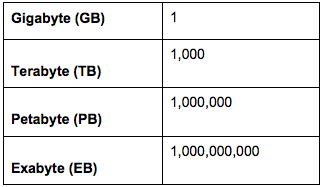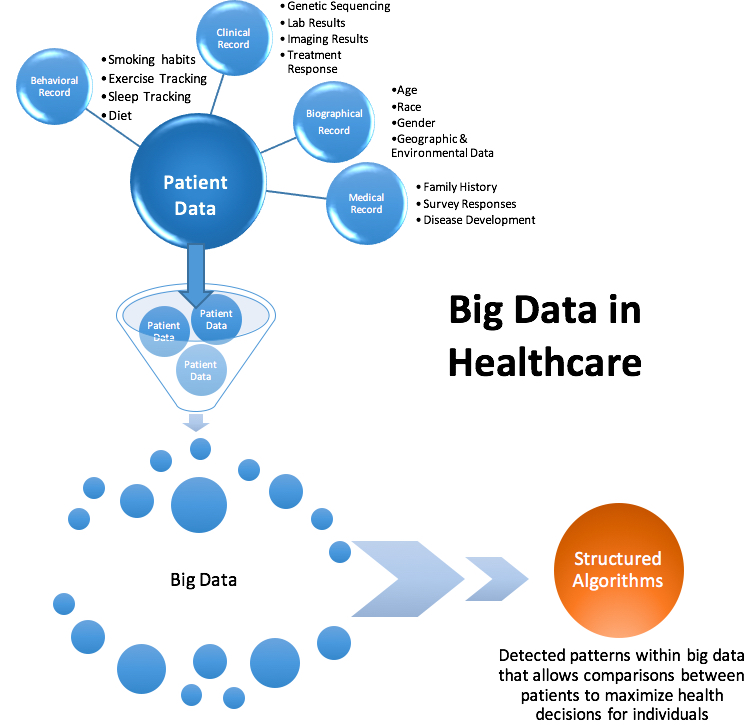Big Data: What It Is and How It Can Affect Your Health
Big Data in Healthcare
Many industries have been quick to invest in and adopt infrastructure to support “big data” in recent years, but what exactly is “big data”? And how can it be applied to the healthcare industry? “Big data” differs from regular data in that it is less structured and exponentially larger, and requires much more effort and expertise to manage and maintain. Analyzing the information contained in big data sets has the potential to inform strategies for care delivery to improve overall health outcomes.
Big data in healthcare comes from a multitude of sources: medical records, biographical information, clinical results, medical surveys, and even fitness, sleeping, and eating data tracked by new wearable technology. This infographic by IBM summarizes where big data in health is coming from and in what forms.
The Institute for Health Technology Transformation claims that healthcare organizations have produced over 150 exabytes of health-related data to date. For reference:

How can big data make care more personalized?
Though analyzing large, non-uniform data sets is a complex process, the findings can be used to tailor care to individuals. This allows more efficient and cost-friendly medical care. Big data enables a more complete analysis of a patient’s overall health and behavior, which allows medicine to be more personalized to each individual experience through personalized risk assessment alongside management and treatment choice. Siemens, a health care engineering firm, summarizes the emergence and practical applications of big data in healthcare in this video.
Big Data in Risk Assessment
Big data has the capability to improve assessment of a patient’s risk for certain health problems through both lifestyle tracking and genetic testing. Because we now know that an individual’s health is based on both their genetic risk and their environment, the more data we have about an individual, the more comprehensive the picture we have of their health. Risk-assessment tools are capable of utilizing big data inputs about a patient, including their family medical history, lifestyle choices like exercise and diet, biographical data, and clinical records. Once this is collected, comparisons can be made between the patient and hundreds of thousands of others who share similar backgrounds or diagnoses, allowing an assessment across multiple dimensions. When combined with a full genetic profile, an individual’s risk for a variety of health-related issues can be pinpointed with more precision than ever. For example, through data analysis we could determine that males who have a certain gene are more at risk for a certain health problem if they live in certain geographical regions. By recognizing this factor, the patient can take greater measures to lower his risk and prevent the problem.
Big Data in Maximizing Treatment Effectiveness
Even for one particular disease, every case is unique and not every patient will have equal success with the same treatment. This is because diseases interrupt biological pathways in different ways and require different treatments to target their effects. Big data leads to a greater understanding of this disease complexity that contributes to variance in treatment success. Even the effects of non-biological treatments, like behavior-change interventions, can be analyzed, which can help identify certain barriers to healthy living that are common across similar groups of patients. This can allow us to personalize interventions to certain individuals, making them more effective.

There are a number of nationwide initiatives attempting to aggregate big data. President Obama’s Precision Medicine Initiative (PMI) is one of them. This cohort program has a goal of collecting data from at least 1 million volunteers in the nation, in addition to other projects like the Million Veteran Program (MVP). Hopefully, the PMI will be able to overcome the challenges of big data and provide a base model for future big data initiatives in healthcare.
Further Reading:
IBM Analytics in Healthcare
Big Data in Healthcare Made Simple
Institute for Health Technology Transformation Big Data Summary
